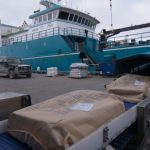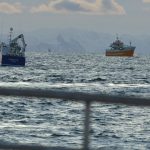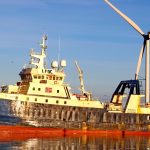According to the information the application applies to the salmon fisheries in Chignik, Cook Inlet, Kodiak, and Prince William Sound. It also includes application for payment to Natives and the Prince William Sound 1989 fund. In this application a request ha sbeen made to the authority to pay 5,331 claims that were not included in the fist wave of payments made to these claim categories in December.
However, it is said that is anyone has multiple liens, such as an IRS lien, and have signed up for voluntary payment of estimated taxes, their claim is not included in this application. Rather, their claim will be included in a third application to the court. It is told that those who were paid in 2008, the EQSF anticipates sending out 1099 forms during the last week of January.
It is one of the biggest oil spill happened in recent history, approximately 10 million gallons of oil into the waters of Alaska’s Prince William Sound in what remains to this day the most devastating oil spill in U.S. waters. The Exxon Valdez was under the command of an inebriated captain, Joe Hazelwood at the time of the grounding. Exxon was aware that Captain Hazelwood was a relapsed alcoholic, yet left him in charge of a supertanker laden with millions of gallons of toxic crude oil, with devastating consequences.
The effect of such big oil spill was very strong as over 34,000 injured persons — fishermen, natives, local governments, and others — sued Exxon seeking compensation for the economic damage caused by the oil spill. Ever since a jury collectively awarded these plaintiffs $5 billion in punitive damages in September 1994, Exxon has sought to
appeal and delay payment of punitive damage compensation to the oil spill’s victims. It is said that the Exxon Valdez oil spill’s effect on fisheries and subsistence resources that have never fully recovered.








